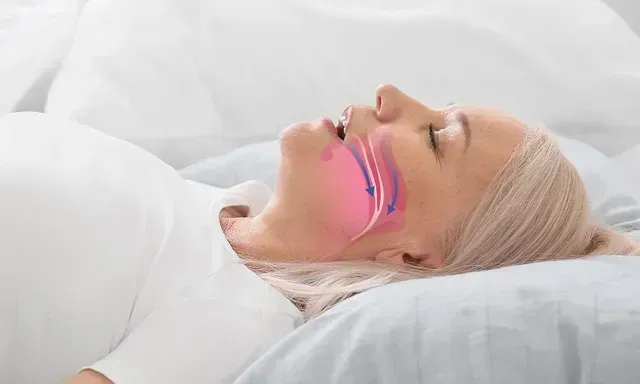Obstructed Airways

Obstructed Airways services offered in Wexford, Monroeville and McMurray, PA
Obstructed airways increase your risk of various respiratory issues, including snoring, sleep apnea, and chronic congestion. At Pittsburgh Dental Sleep Medicine in McMurray, Monroeville, and Wexford, Pennsylvania our snoring and sleep apnea dentists can diagnose an obstructed airway and recommend solutions that can help you breate easier!
Call our office today or use our online booking tool to request an appointment.
What are obstructed airways?
An obstructed airway refers to a blockage in any part of your respiratory system. The respiratory system is a complex network of tubes that connect your nose and mouth to your lungs.
Most airway obstructions are minor and respond to conservative treatment. Still, if an obstruction blocks your entire airway, it’s potentially life-threatening and might require surgery.
What are the types of airway obstructions?
Pittsburgh Dental Sleep Medicine diagnoses several types of airway obstructions, including:
- Upper airway obstructions (a blockage in the area between your nose, lips, and larynx)
- Lower airway obstructions (a blockage between your larynx and lungs)
- Partial airway obstructions (a blockage in which some air can pass)
- Acute airway obstructions (blockages that occur because of infections or foreign objects)
- Chronic airway obstructions (blockages that develop slowly over time)
If you experience difficulty breathing at night and it prevents you from getting restful or rejuvenating sleep, don’t wait to seek treatment.
What are some common causes of obstructed airways?
Obstructed airways occur for various reasons, including:
- Viral infections
- Bacterial infections
- Inhaling or swallowing foreign objects
- Swelling of the tongue
- Allergic reactions
- Abscesses in the throat and nostrils
You might also experience an obstructed airway because of trauma, like a blow to your trachea.
How are obstructed airways diagnosed?
To diagnose an obstructed airway, our sleep dentists review your health records, asks about your symptoms, and completes an oral exam.
They also order X-rays, or cone beam computed tomography (CBCT) scans, looking for blockages in your trachea, nasal passages, or throat. After finding the obstruction, your provider can provide treatment recommendations.
How are obstructed airways treated?
Treatment of obstructed airways depends on various factors, including your age, medical history, and the severity of your symptoms. If your obstruction occurs because of sleep apnea, your provider might prescribe Oral Appliance Therapy.
If you have a foreign object lodged inside your nose, surgery might be necessary. Our providers may refer you to an ear, nose, and throat (ENT) specialist to discuss surgical procedures.
Can airway obstructions be prevented?
You can’t prevent airway obstructions entirely, but there are several things you can do to reduce your risk. Pittsburgh Dental Sleep Medicine recommends eating slowly, chewing your food thoroughly, and quitting smoking.
To learn more about diagnosing obstructed airways, call Pittsburgh Dental Sleep Medicine to schedule an appointment or use our online booking tool.

